January 9, 2019 •
Amendments to Canada’s Election Laws Take Effect in June 2019
On June 13, 2019, amendments to the Canada Elections Act affecting spending limits for third parties and political parties takes effect. Bill C-76, the Elections Modernization Act, received Royal Assent on December 13, 2018. The bill is scheduled to take […]
 On June 13, 2019, amendments to the Canada Elections Act affecting spending limits for third parties and political parties takes effect. Bill C-76, the Elections Modernization Act, received Royal Assent on December 13, 2018.
On June 13, 2019, amendments to the Canada Elections Act affecting spending limits for third parties and political parties takes effect. Bill C-76, the Elections Modernization Act, received Royal Assent on December 13, 2018.
The bill is scheduled to take effect six months after Royal Assent, unless Elections Canada determines some portion of the law should take effect earlier. The legislation establishes measures to increase transparency regarding the participation of third parties in the electoral process by adding reporting requirements for third parties engaging in partisan activities, partisan advertising, and election surveys.
Additionally, the bill creates an obligation for third parties to open a separate bank account for expenses and creates an obligation for political parties and third parties to identify themselves in partisan advertising.
The bill also extends voting hours on advance polling days to encourage participation in the election process for voters. Bill C-76 also amends the Parliament of Canada Act to prevent the calling of a by-election for a vacant seat in the House of Commons within nine months before a scheduled general election.
January 9, 2019 •
By-Election Nanaimo–Ladysmith (British Columbia) Seat in House of Commons To Be Announced on Future Date
Sometime before July 6, 2019, a by-election will be announced for the seat in the House of Commons representing Nanaimo–Ladysmith in the province of British Columbia. On January 7, the Chief Electoral Officer of Canada, Stéphane Perrault, received official notice […]
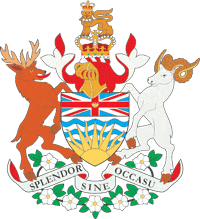 Sometime before July 6, 2019, a by-election will be announced for the seat in the House of Commons representing Nanaimo–Ladysmith in the province of British Columbia.
Sometime before July 6, 2019, a by-election will be announced for the seat in the House of Commons representing Nanaimo–Ladysmith in the province of British Columbia.
On January 7, the Chief Electoral Officer of Canada, Stéphane Perrault, received official notice from the Speaker of the House of Commons that the seat for Nanaimo–Ladysmith (British Columbia) became vacant following the resignation of Sheila Malcolmson, who resigned on January 2 to run in a provincial by-election.
Under the law, the by-election date must be announced between January 18 and July 6, 2019, and will signal the start of the by-election period.
According to Elections Canada, the earliest date the by-election can be held is February 25, 2019.
December 18, 2018 •
Prince Edward Island Lobbying Laws Scheduled to Come into Force on April 1, 2019
The new lobbying law for the province of Prince Edward Island is scheduled to come into effect April 1, 2019, according to its Department of Justice and Public Safety. Bill No. 24, the Lobbyist Registration Act, was passed in December […]
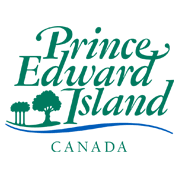 The new lobbying law for the province of Prince Edward Island is scheduled to come into effect April 1, 2019, according to its Department of Justice and Public Safety. Bill No. 24, the Lobbyist Registration Act, was passed in December of 2017 during the Third Session of the 65th General Assembly of the Prince Edward Island Legislative Assembly and has already received Royal Assent. Currently the province is setting up an Office of the Lobbyist Registrar.
The new lobbying law for the province of Prince Edward Island is scheduled to come into effect April 1, 2019, according to its Department of Justice and Public Safety. Bill No. 24, the Lobbyist Registration Act, was passed in December of 2017 during the Third Session of the 65th General Assembly of the Prince Edward Island Legislative Assembly and has already received Royal Assent. Currently the province is setting up an Office of the Lobbyist Registrar.
Upon the Act coming into force, consultant lobbyists, in-house lobbyists, and employers of in-house lobbyists will be required to register with the Registrar when communicating with a public office holder, directly or through grassroots communications, in an attempt to influence them on a variety of issues. Additionally, a consultant lobbyist will be required to register when communicating with a public-office holder to influence the awarding of any contract by or on behalf of the Crown or arrange a meeting between a public-office holder and any other person.
Registrants will be required to file returns with this Registrar every six months detailing any relevant subject matters lobbied, including legislative and regulatory proposals, the techniques of communication the lobbyist has used or expects to use to lobby, the employer or client for which the registrant is lobbying, and the identification of entities or persons paying more than $750 per fiscal year to the registrant to lobby.
Lobbying on a contingency fee basis is prohibited for consultant lobbyists and former public office holders are prohibited from lobbying for a period of six months after leaving office. Penalties for violations of the Act include fines up to $25,000. Canada’s three territories still do not have laws regulating lobbying.
December 18, 2018 •
Canadian Territory of Yukon To Have Lobbying Law
Sometime in 2019 the Canadian territory of Yukon will have its first lobbying law. Bill No. 23, the Lobbyist Registration Act, received Royal Assent on November 22, 2018, but is not yet in effect. The Act will come into force […]
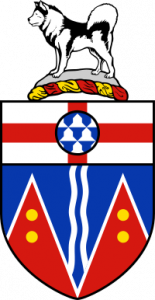 Sometime in 2019 the Canadian territory of Yukon will have its first lobbying law. Bill No. 23, the Lobbyist Registration Act, received Royal Assent on November 22, 2018, but is not yet in effect. The Act will come into force on a day or days to be fixed by the Commissioner in Executive Council, likely in late 2019.
Sometime in 2019 the Canadian territory of Yukon will have its first lobbying law. Bill No. 23, the Lobbyist Registration Act, received Royal Assent on November 22, 2018, but is not yet in effect. The Act will come into force on a day or days to be fixed by the Commissioner in Executive Council, likely in late 2019.
Upon the Act coming into force, consultant lobbyists and in-house lobbyists will be required to register. Registration will be required for individuals communicating with a public office holder, directly or through grassroots communications, in attempts to lobby. Additionally, a consultant lobbyist will be required to register when arranging a meeting between a public office holder and any other person for the purposes covered by the Act.
There are two revolving door provisions in the Act. For the six-month period after ceasing to be in office, a former public office-holder is prohibited from lobbying as a consultant lobbyist, but he or she is not prohibited from immediately lobbying as an in-house lobbyist. Additionally, a consultant lobbyist is prohibited from becoming an employee of Yukon’s public service for six months after the terminating of his or her lobbyist registration.
Penalties for violations of the Lobbyist Registration Act include fines up to $25,000 for the first violation and up to $100,000 for each subsequent violation.
November 28, 2018 •
Alberta, Canada Considering Municipal Campaign Finance Bill
On November 26, a campaign finance bill concerning municipal elections in Alberta, Canada, was adjourned for consideration of an amendment increasing the proposed fines for third party election advertisers found in violations of the Act. The provincial government’s initial 180-page […]
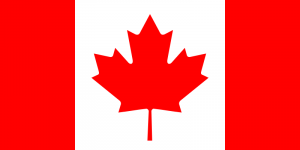 On November 26, a campaign finance bill concerning municipal elections in Alberta, Canada, was adjourned for consideration of an amendment increasing the proposed fines for third party election advertisers found in violations of the Act.
On November 26, a campaign finance bill concerning municipal elections in Alberta, Canada, was adjourned for consideration of an amendment increasing the proposed fines for third party election advertisers found in violations of the Act.
The provincial government’s initial 180-page legislation, Bill 23, An Act to Renew Local Democracy in Alberta, introduced earlier this month, would ban corporate and union political contributions for municipal and school board elections. Individuals would be limited to contributions of $4,000 for local elections.
Additionally, campaign periods would be shortened from four years to one year before the date of a local election. The bill also requires financial disclosures from all local candidates, including individuals who fund their own campaigns.
Some entities would still be able to receive unlimited contributions from individuals, unions, and corporations, but would have to disclose the names of its contributors to Elections Alberta. Those organizations would also be limited on how the raised funds could be spent.
November 15, 2018 •
December 3 Election Date Chosen for Leeds–Grenville–Thousand Islands and Rideau Lakes (Ontario), Canada
On December 3, an election will be held for the electoral district of Leeds–Grenville–Thousand Islands and Rideau Lakes (Ontario) to fill a vacancy in the House of Commons. The seat was held by MP Gordon Brown, who died unexpectedly of […]
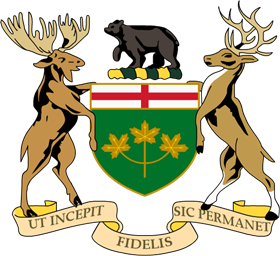 On December 3, an election will be held for the electoral district of Leeds–Grenville–Thousand Islands and Rideau Lakes (Ontario) to fill a vacancy in the House of Commons.
On December 3, an election will be held for the electoral district of Leeds–Grenville–Thousand Islands and Rideau Lakes (Ontario) to fill a vacancy in the House of Commons.
The seat was held by MP Gordon Brown, who died unexpectedly of a heart attack on May 2.
Although the seat became vacant in the spring, the election date was not chosen until October 28, which signals the start of the election period.
October 3, 2018 •
By-Election For York–Simcoe (Ontario) Seat in House of Commons To Be Announced on Future Date
Sometime before March 30, 2019, a by-election will be announced for the seat in the House of Commons representing York–Simcoe in the province of Ontario. On October 2, the Chief Electoral Officer of Canada, Stéphane Perrault, received official notice from […]
 Sometime before March 30, 2019, a by-election will be announced for the seat in the House of Commons representing York–Simcoe in the province of Ontario.
Sometime before March 30, 2019, a by-election will be announced for the seat in the House of Commons representing York–Simcoe in the province of Ontario.
On October 2, the Chief Electoral Officer of Canada, Stéphane Perrault, received official notice from the Speaker of the House of Commons that the seat for York–Simcoe (Ontario) became vacant following the resignation of Peter Van Loan, who resigned on September 30. Van Loan plans to return to the practice of law, according to Bradford Today.
Under the law, the by-election date must be announced between October 12, 2018, and March 30, 2019, and will signal the start of the by-election period. According to Elections Canada, the earliest date the by-election can be held is November 19, 2018.
September 19, 2018 •
By-Election For Burnaby South (British Columbia) Seat in House of Commons To Be Announced on Future Date
Sometime before March 18, 2019, a by-election will be announced for the seat in the House of Commons representing Burnaby South in the province of British Columbia. On September 17, the Chief Electoral Officer of Canada, Stéphane Perrault, received official […]
 Sometime before March 18, 2019, a by-election will be announced for the seat in the House of Commons representing Burnaby South in the province of British Columbia.
Sometime before March 18, 2019, a by-election will be announced for the seat in the House of Commons representing Burnaby South in the province of British Columbia.
On September 17, the Chief Electoral Officer of Canada, Stéphane Perrault, received official notice from the Speaker of the House of Commons that the seat for Burnaby South (British Columbia) became vacant following the resignation of Kennedy Stewart, who resigned on September 14 in order to run for mayor of Vancouver.
Under the law, the by-election date must be announced between September 28, 2018, and March 18, 2019, and will signal the start of the by-election period.
According to Elections Canada, the earliest date the by-election can be held is November 5, 2018.
August 30, 2018 •
Manitoba Electoral Divisions Boundaries Changes Proposed
Starting on September 10, the Manitoba Electoral Divisions Boundaries Commission begins public hearings regarding proposed changes to all 57 existing electoral divisions in the province. The hearings will be held from September 10 to September 20 in 11 cities. The […]
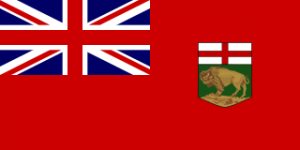 Starting on September 10, the Manitoba Electoral Divisions Boundaries Commission begins public hearings regarding proposed changes to all 57 existing electoral divisions in the province. The hearings will be held from September 10 to September 20 in 11 cities.
Starting on September 10, the Manitoba Electoral Divisions Boundaries Commission begins public hearings regarding proposed changes to all 57 existing electoral divisions in the province. The hearings will be held from September 10 to September 20 in 11 cities.
The Commission is inviting feedback from the public concerning the proposed electoral division boundaries and names. Sixteen new names have been proposed by the Commission, including six inside of and 10 outside of Winnipeg. The proposed electoral division boundaries and names, along with their respective populations, are available to view on the Commission’s website.
The last review of the province’s electoral divisions boundaries was in 2008. After the hearings, the Commission’s final report is expected to become law and go into effect before the next provincial general election in October 2020.
August 17, 2018 •
By-Election For Outremont (Quebec) Seat in House of Commons To Be Announced on Future Date
Sometime before January 30, 2019, a by-election will be announced for the seat in the House of Commons representing Outremont in the province of Quebec. On August 3, the Chief Electoral Officer of Canada, Stéphane Perrault, received official notice from […]
 Sometime before January 30, 2019, a by-election will be announced for the seat in the House of Commons representing Outremont in the province of Quebec.
Sometime before January 30, 2019, a by-election will be announced for the seat in the House of Commons representing Outremont in the province of Quebec.
On August 3, the Chief Electoral Officer of Canada, Stéphane Perrault, received official notice from the Speaker of the House of Commons that the seat for Outremont (Quebec) became vacant following the resignation of Tom Mulcair, who left office to teach at the at Universite de Montreal and to become a regularly scheduled political commentator at CJAD radio and CTV news.
Under the law, the by-election date must be announced between August 14, 2018, and January 30, 2019, and will signal the start of the by-election period. According to Elections Canada, the earliest date the by-election can be held is September 24, 2018.
August 10, 2018 •
Yukon Government Seeks Public Input for Lobbying Law
The Government of Yukon is seeking public input for development of a mandatory lobbyist registry. On August 6, the government issued a news release stating proposed legislation would cover both consultant and in-house lobbyists. The voluntary public survey is hosted […]
 The Government of Yukon is seeking public input for development of a mandatory lobbyist registry.
The Government of Yukon is seeking public input for development of a mandatory lobbyist registry.
On August 6, the government issued a news release stating proposed legislation would cover both consultant and in-house lobbyists. The voluntary public survey is hosted by the Yukon Bureau of Statistics and is available until September 4. The survey is available online or on paper, by request. All public input remains confidential in accordance with the Statistics Act (Yukon).
If legislation concerning lobbying passes, Yukon would become the first Canadian territory with a lobbyist registry. Currently, the Northwest Territories and Nunavut also do not have lobbying laws. The federal government and all provinces in Canada have lobbyist registries.
July 9, 2018 •
St. Boniface, Manitoba By-Election Early Voting Has Begun
Early voting has begun for the July 17 by-election to fill the St. Boniface provincial seat in the Legislative Assembly of Manitoba. The MLA (Member of the Legislative Assembly) seat for the St. Boniface constituency has been vacant since March […]
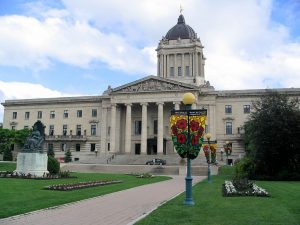 Early voting has begun for the July 17 by-election to fill the St. Boniface provincial seat in the Legislative Assembly of Manitoba.
Early voting has begun for the July 17 by-election to fill the St. Boniface provincial seat in the Legislative Assembly of Manitoba.
The MLA (Member of the Legislative Assembly) seat for the St. Boniface constituency has been vacant since March 7, when former Manitoba premier Greg Selinger resigned amid allegations of MLA Stan Struthers’s inappropriate behavior while Selinger was leader of the party.
Premier Brian Pallister did not call for the special by-election until June 19. Selinger had been the MLA for the St. Boniface riding since 1999.
July 6, 2018 •
Ontario, Canada Lawmakers to Meet July 11
On July 11, the 1st Session of the 42nd Parliament of the Legislative Assembly of Ontario will begin. Newly elected Premier Doug Ford called the legislature for the rare summer sitting. The House is meeting for the first time since […]
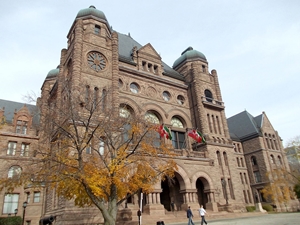 On July 11, the 1st Session of the 42nd Parliament of the Legislative Assembly of Ontario will begin. Newly elected Premier Doug Ford called the legislature for the rare summer sitting.
On July 11, the 1st Session of the 42nd Parliament of the Legislative Assembly of Ontario will begin. Newly elected Premier Doug Ford called the legislature for the rare summer sitting.
The House is meeting for the first time since the June 7 general election and its first order of business will be for the lawmakers to elect a leader.
The regular sitting is scheduled to start on July 16. The speech from the throne is scheduled for July 12 at 2 p.m.
June 14, 2018 •
Amendments to Alberta’s Lobbying Law Take Effect
On June 11, several significant amendments to Alberta’s provincial lobbying law took effect when the Lobbyists Amendment Act, 2018, came into force by Royal Assent. The most substantial change in the existing Lobbyist Act is the reduction of an organizational […]
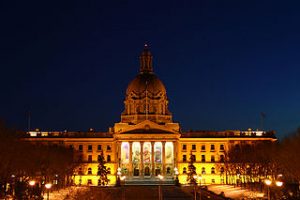 On June 11, several significant amendments to Alberta’s provincial lobbying law took effect when the Lobbyists Amendment Act, 2018, came into force by Royal Assent. The most substantial change in the existing Lobbyist Act is the reduction of an organizational lobbyist’s time threshold from 100 hours annually to 50 hours annually.
On June 11, several significant amendments to Alberta’s provincial lobbying law took effect when the Lobbyists Amendment Act, 2018, came into force by Royal Assent. The most substantial change in the existing Lobbyist Act is the reduction of an organizational lobbyist’s time threshold from 100 hours annually to 50 hours annually.
For the purposes of determining whether lobbying amounts to 50 hours annually, time spent lobbying includes time spent preparing for communication and communicating with a public office holder. Contingency lobbying is now prohibited under the Act.
Another change to the law amends the definition of lobbying to statutorily include grassroots communication as a form of regulated lobbying requiring registration. Grassroots communication does not include communication between an organization and its members, officers or employees or between a person or partnership and its shareholders, partners, officers or employees.
A lobbyist gift ban has been enacted and reads as follows, “Lobbyists are prohibited from giving or promising any gift, favor or other benefit to the public office holder being, or intended to be, lobbied that the public office holder is prohibited from accepting or that, if given, would place the public office holder in a conflict of interest.”
An additional exemption to the requirement of registering as a lobbyist was added for individuals who are recognized as elders by their aboriginal community.
State and Federal Communications, Inc. provides research and consulting services for government relations professionals on lobbying laws, procurement lobbying laws, political contribution laws in the United States and Canada. Learn more by visiting stateandfed.com.


